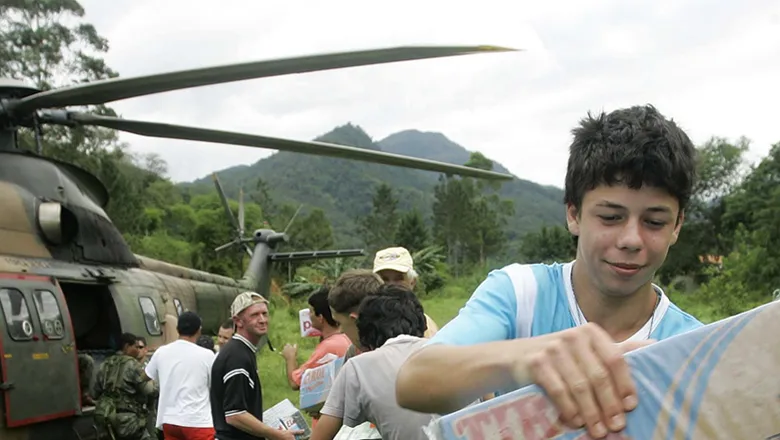We’ve always had a wide range of expertise on issues relating to environmental security across the School of Security Studies and the SSPP Faculty more widely. This includes research and teaching on everything from climate resilience, migration and resource security, through to environmental communications, the securitisation of conservation, and grand strategy. "But until now we haven’t really had a forum to bring that expertise together to really drive forwards our educational, research and policy impact. The ESRG provides an exciting new opportunity to achieve this, not just for our own scholarly community but also for the students, government agencies and NGOs with whom we work."
Dr Duraid Jalili
16 February 2021
New research group to support vital work on environmental security and resource scarcity
The new inter-disciplinary and collaborative research group focuses on all aspects of environmental security

A new inter-disciplinary and collaborative research group has been set up in the School of Security Studies, King's College London, focusing on all aspects of security and the environment.
The Environmental Security Research Group (ESRG) represents a new stage in the delivery of environmental security education, research and policy development. It will provide a new forum for internal and external collaboration in areas ranging from curricular development through to major research projects.
Amongst its core focus areas will be to examine the planetary, international, national and human security repercussions of climate change, resource insecurity and biocapacity loss. It will also work on developing new knowledge and policy on the opportunities, challenges and limitations for security forces to help governments and societies manage, mitigate and adapt to these repercussions.
The ESRG will organise a programme of events, workshops and activities to enable students and staff to share their findings, highlight key priorities for the future of the research field, and engage with key stakeholders in government and the wider security community. These discussions will help to generate original and innovative insights, policy proposals and recommendations on environmental security.
The group has been set up thanks to funding from the King’s Social Sciences and Public Policy faculty and despite being only a couple of months old, is already involved in multiple research projects. This includes a collaborative project with the Norwegian University of Science and Technology, Trondheim on how changes in the exploitation of natural resources have shaped global politics, as well as a British Academy funded project on the role of civil defence, para-military and military organisations across Europe in delivering resilience activities.
The group is also currently putting together funding bids for additional projects on issues ranging from the psychology of climate communication and advocacy across the security sector through to the ways in which climate change is being framed in military strategy.
Dr Duraid Jalili, co-Director of the group and Teaching Fellow at the UK Defence Academy notes that:
Dr Maeve Ryan, Co-Director of the group and Lecturer in History and Grand Strategy at the Department of War Studies, said:
Generating credible evidence and nuanced understandings of the nexus between the environment and security is clearly critical for our ability to achieve security at all levels, from local community building through to global governance. "What has become equally vital, however, is ensuring that these insights reach the right people, at the right time, in the right way. This means embracing a truly multi-disciplinary approach and bringing together the perspectives of stakeholders and communities that might not otherwise get the chance to collaborate or to inform change. It’s great to be able to provide a forum for achieving this across our research, education and policy work."
Dr Maeve Ryan
Visit the Environmental Security Research Group web page and follow the group on Twitter to stay up to date with new research, educational and policy developments.
